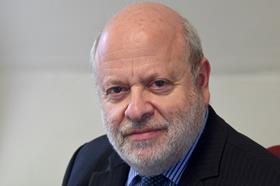The firestorm of news reports through which the reputation of the legal profession is passing – ‘amoral lawyers helping Russian oligarchs to evade sanctions’, that sort of thing - is an opportunity to consider the future.

It is bizarre that the part of the profession which has caused the firestorm is the end which is usually considered to contain our centres of excellence: the large firms in the City of London, the export champions, the owners of glittering and vast atria which attract the wealthiest clients (individual and corporate) from around the world. It makes up a substantial and specific part of the legal profession, but not the whole. However, we are one profession, and the good and bad occur to all of us.
We can argue forever about whether this was foreseeable. Some have maintained for years that the flow of vast amounts of dubious Russian wealth through the UK corrupted most things it touched. The Russian invasion of Ukraine has laid the problem bare.
We can also argue about the correct ethical response. It is good to see the discussion in the pages of the Gazette about whether the traditional ethical principles still hold, or whether there needs to be a much firmer emphasis in the future on the responsibilities of solicitors to the rule of law and administration of justice, regardless of client wishes or the legality of instructions. The SRA has recently re-issued guidance in this respect on conduct in disputes, and the Law Society is undertaking a debate internally among its committees about the problem more generally, whether involving disputes or not.
I think another important strand of discussion should take place around the model we promote for legal services as a whole. The City of London, and indeed the UK, are open to all, attracting business from everywhere in the world. The UK government has its ‘Legal Services are GREAT’ campaign, and the Law Society its ‘Global Legal Centre’ counterpart.
But should we be open to all? The Russian invasion has shown the danger. But it would be foolish to think that Russia is or was our only weak spot.
To take the other big power with which the West has an uneasy relationship, China, we have seen sanctions on Essex Court Chambers, and the struggles over the continuing involvement of British judges in the legal system in Hong Kong. These are the kind of signs which will lead to accusations of ‘I told you so’ if matters grow worse.
For instance, if China were to invade Taiwan, as is often mentioned, the work that City law firms now undertake for the Chinese Belt and Road Initiative (BRI), a plan to extend Chinese power around the world, which many equate with a new form of colonialism, would come under the spotlight. BRI has many critics around debt diplomacy, regulatory breaches and human rights, never mind neo-colonialism.
The evidence shows that the law firms are making a good deal of money from BRI transactions. It is estimated that UK law firms’ work quintupled following the first year of BRI and doubled after the second. Given the recent restrictions on business activity during the pandemic, growth slowed to 12%.
I predict that there will be the same kind of reputational fall-out in due course if there is a severe crisis involving China. There may be trouble sooner than we think, too, if the recent news about Russian approaches to China over material help with the Ukraine invasion leads to actual Chinese assistance, meaning the world falls into two warring camps.
That brings us back to considering whether our model of being open to all is still viable. This is a matter which goes beyond law firms, since it has long been a UK mantra. But, as we have seen from the Russian fiasco, lawyers have a special duty not only to their clients but to the rule of law and the administration of justice. We are supposed to consider the consequences of our advice in relation to higher values, and foresee the likely risks to those values.
My view is that we can clearly see that being open to all is no longer feasible. The rapid divestment of Russian business by the big law firms is an echo – forced upon them on this occasion - of the action Clifford Chance took recently in relation to climate change, when it announced it would move away from matters that present climate risks, to the point of deciding whether to take on such clients at all.
It is best if the market leads the way with solutions, since outside decisions being forced on law firms is not usually desirable. But some limits need to be set on the openness of the City of London, some moral guidelines which show where the boundaries lie and openness stops.
Jonathan Goldsmith is Law Society Council member for EU & international and a former secretary general of the Council of Bars and Law Societies of Europe. All views expressed are personal and are not made in his capacity as a Law Society Council member, nor on behalf of the Law Society
This article is now closed for comment.
































4 Readers' comments